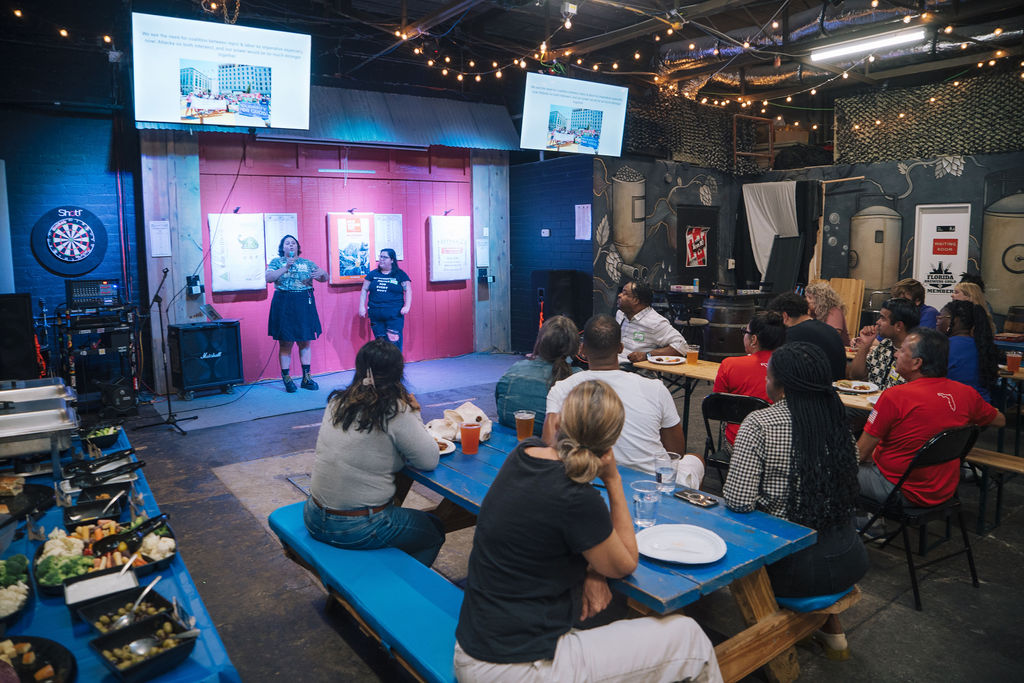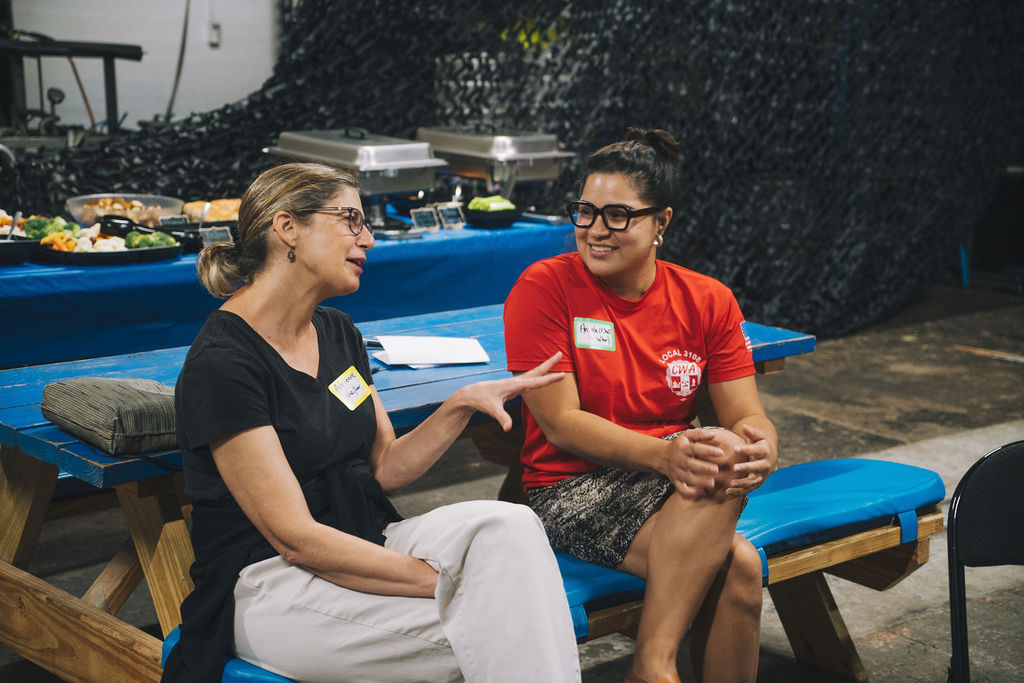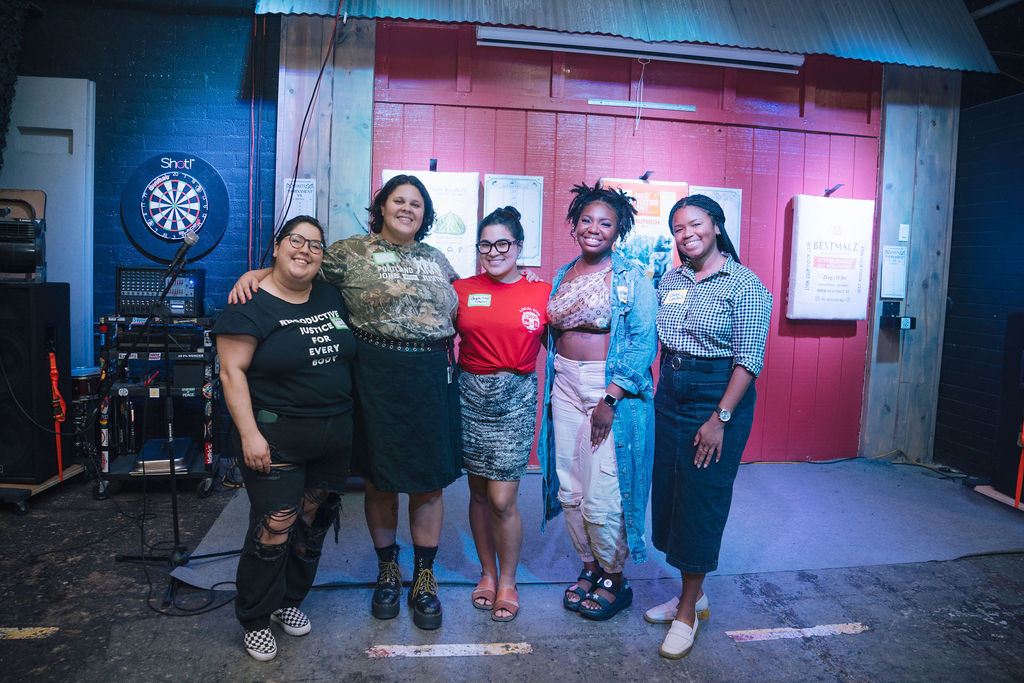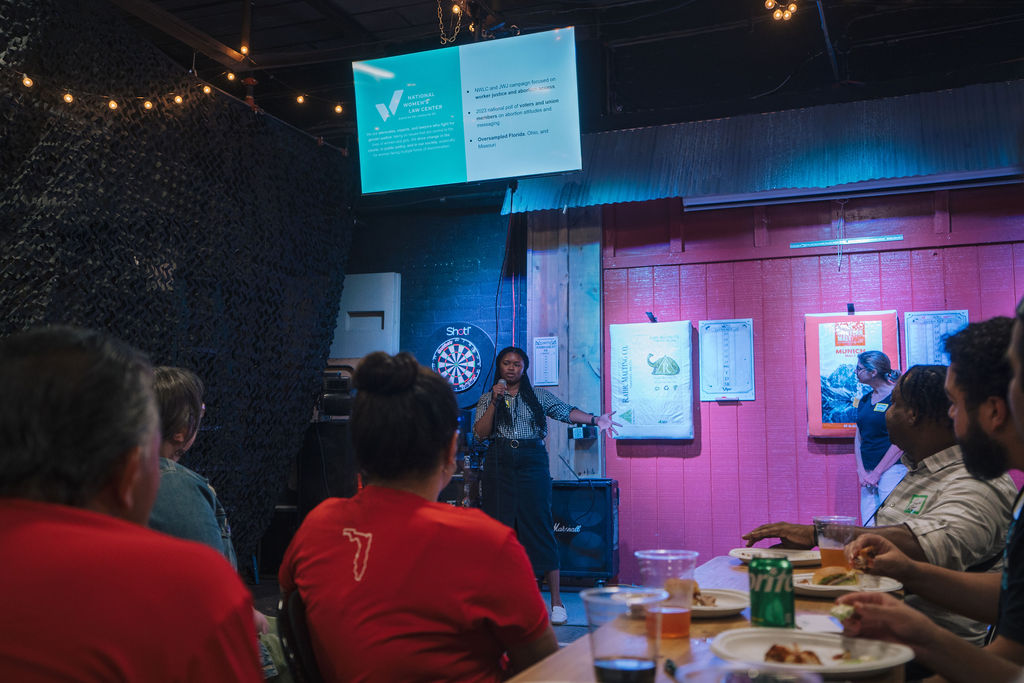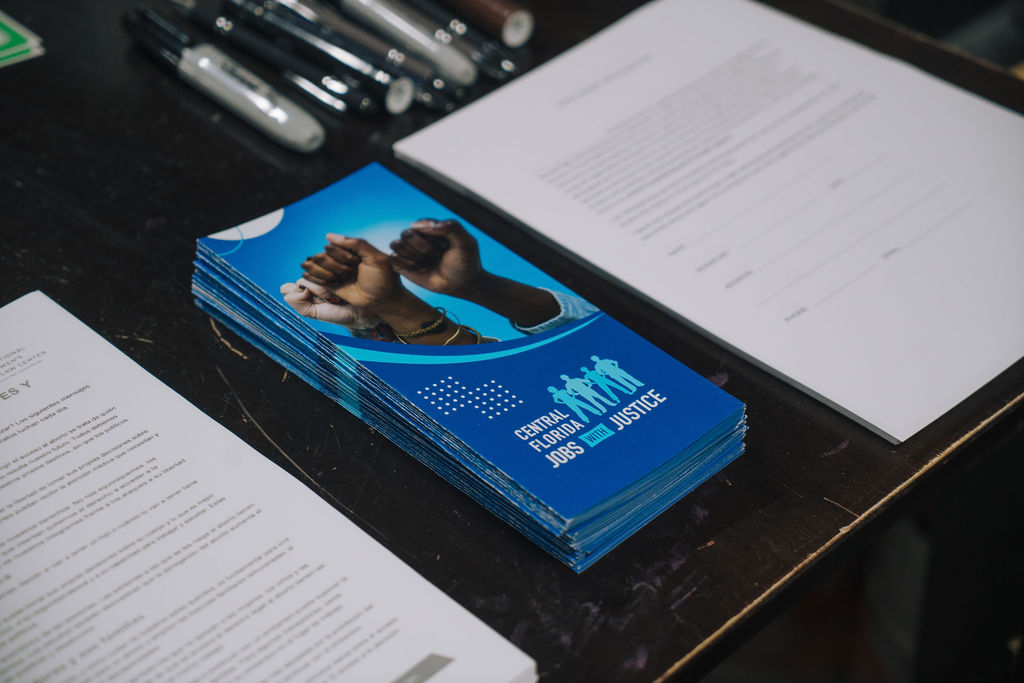For a comprehensive collection of resources, updates, and ways to support communities affected by Hurricanes Helene and Milton, visit Central Florida Jobs with Justice’s Hurricane Relief and Recovery Resource Hub.
Last month, NWLC joined Central Florida Jobs with Justice (CFJWJ) and Florida Access Network (FAN) in Orlando to convene local worker justice and reproductive justice groups. The convening was an opportunity for labor and reproductive health, rights, and justice advocates to articulate common values and strengthen shared fights. It was also a potent reminder that the lawmakers trying to take away our reproductive rights are the same ones trying to take away our labor rights, underscoring that our movements are innately intertwined. And that our work will always be stronger together.
Florida lawmakers have advanced a series of extremist laws in recent years, including attacks on reproductive freedom, LGBTQI+ communities, education, voting rights, and more. Since May, Floridians have endured a draconian six-week abortion ban, decimating abortion access in the southeast U.S. and straining regional abortion funds’ resources. Prior to the unjust overturning of Roe v. Wade, Floridians had already faced a slew of anti-abortion restrictions, including mandatory waiting periods, parental consent requirements, and more. At the same time, Florida has a long list of anti-worker laws, including dangerous child labor and heat safety policies, and a longstanding “right-to-work” law – an anti-labor policy that limits unions’ resources and weakens workers’ voices.
Florida lawmakers and agencies have also launched a series of anti-democratic attacks against a measure that will appear on the state ballot this November and would expand access to abortion care. These attacks include the state health agency publicly opposing the ballot measure on its government website, state police questioning petition signers at their homes, and more.
Despite anti-abortion and anti-worker attacks by their lawmakers, Floridians, and Florida union members in particular, are strongly supportive of abortion access. According to an NWLC poll, 71% of Florida union members surveyed think abortion should be legal and more than two-thirds would be more favorable to their union if it came out in support of abortion access. This is because abortion access is worker justice – from access to health care and paid sick leave to privacy rights and non-discrimination protections, the right to control what happens to your body is deeply connected to the right to control your labor. As the fight for reproductive and workers’ rights continues in Florida, it’s clear that workers value the freedom to make their own decisions about their bodies, lives, and futures, including how to care for their families.
Organizations like CFJWJ and FAN have steadfastly fought for the freedoms that workers and their families value. CFJWJ is at the forefront of educating workers about their rights and advocating for fair labor practices in the state. Through educational campaigns and grassroots mobilization, CFJWJ engages and builds the collective power of working people in Florida. As the only queer, BIPOC-led statewide abortion fund in Florida, FAN fights for reproductive justice for all Floridians through community building, education, and support programs.
CFJWJ and FAN see community education as a powerful tool to mobilize communities at the intersection of reproductive rights and workers’ rights. Together, they plan to build on last month’s convening by launching a reproductive and labor justice training program for Floridians. The training will foster critical conversations on bargaining for the common good and equip local labor leaders with essential tools to advance reproductive rights in their unions and broader communities.
Collaborative efforts, like those between CFJWJ and FAN, are crucial in advancing shared fights. By promoting education, facilitating dialogue, and mobilizing community members, partnerships like this can play a pivotal role in resisting anti-democratic forces and ultimately securing reproductive and worker justice for all.


